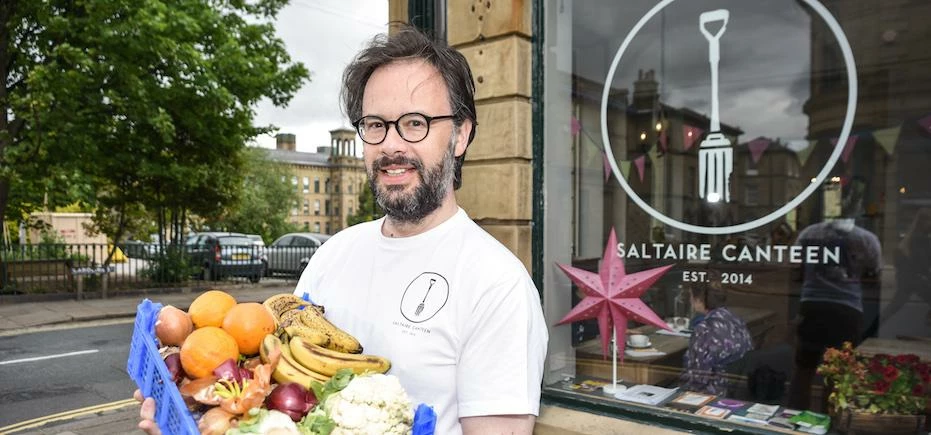
The Real Junk Food Project purchases first commercial premises
Leeds-based The Real Junk Food Project has completed the purchase of its first commercial premises in Armley, Leeds, securing the future of what was the first “junk food café” in the UK.
Adam Smith, an experienced chef, came up with The Real Junk Food Project after witnessing the amounts of fresh produce being fed as waste to farm animals whilst in Australia in 2013.
Determined to tackle this issue, Adam established the first real junk food café in Chapel Lane, Armley, Leeds, and the idea was rapidly spread ever since.
The idea of the project is to take food that would otherwise be regarded as being “waste” and that would have gone to landfill and make it available to consumers at cafés on a ‘pay as you feel’ basis.
Food is taken from a range of sources, including farmers, wholesalers, other restaurants, markets, consumers and even food photographers. Commercial suppliers to the project have seen the benefits of the concept as their landfill tax costs can be significantly reduced by partnering with the project.
Cafes in Yorkshire can be found in Leeds, Saltaire, York, Doncaster and Sheffield. There are now some 40 cafes with many more being established both in the UK and overseas – including most recently in Berlin and Cape Town.
Adam Smith said: “I am immensely proud of what we have achieved so far. Being able to secure this property in which a community has developed over the past 18 months is a real achievement. It remains a scandal that about one third of all food grown goes to waste and that collectively we have been doing little about it until now.
“We are not about poverty, we are about food waste. It is our intention to be out of business within 5 years – by substantially eradicating the huge amounts of food waste currently going to landfill sites.”
Martin Geldard, of Leeds-based Geldards Coaches from whom the project bought the property, said: “We are pleased they have bought the building. I think they do a fantastic job by using food that was going to get thrown away.”
Duncan Milwain, from solicitors Lupton Fawcett Denison Till advising the Real Junk Food Project, added: “As head of our Charity and Social Enterprises Group, I was very interested from the outset in what Adam had to say. I originally advised on the set up of the social enterprise in November 2013. I was so impressed I decided in mid-2014 to establish a café run on the same principles in Saltaire, Bradford. Lupton Fawcett Denison Till has supported me throughout. These cafes represent sustainable businesses with a social purpose - providing employment and training opportunities, good food available to all and a reduction in needless waste.
I would urge those who have not yet visited a Real Junk Food café to do so – you will be surprised by what you see.“
Looking to promote your product/service to SME businesses in your region? Find out how Bdaily can help →
Enjoy the read? Get Bdaily delivered.
Sign up to receive our popular Yorkshire & The Humber morning email for free.








 £100,000 milestone drives forward STEM work
£100,000 milestone drives forward STEM work
 Restoring confidence for the economic road ahead
Restoring confidence for the economic road ahead
 Ready to scale? Buy-and-build offers opportunity
Ready to scale? Buy-and-build offers opportunity
 When will our regional economy grow?
When will our regional economy grow?
 Creating a thriving North East construction sector
Creating a thriving North East construction sector
 Why investors are still backing the North East
Why investors are still backing the North East
 Time to stop risking Britain’s family businesses
Time to stop risking Britain’s family businesses
 A year of growth, collaboration and impact
A year of growth, collaboration and impact
 2000 reasons for North East business positivity
2000 reasons for North East business positivity
 How to make your growth strategy deliver in 2026
How to make your growth strategy deliver in 2026
 Powering a new wave of regional screen indies
Powering a new wave of regional screen indies
 A new year and a new outlook for property scene
A new year and a new outlook for property scene